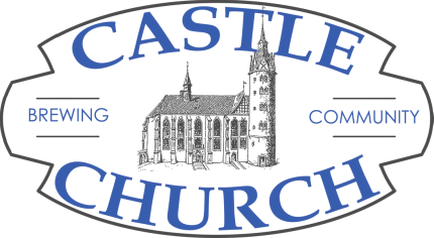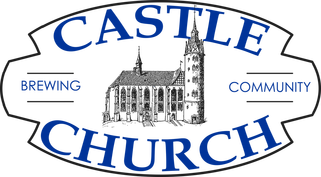The Christian/Lutheran Story:
What is The Christian Story?
Dying on a cross was nothing new in 1st century Rome. Tens of thousands did it, either because they were believed to be murderers, fomenters of rebellion, military deserters, or otherwise a threat to stable society. We’ve forgotten most of them today. We probably wouldn’t pay much attention to Jesus of Nazareth today, either, had he just died that all too common death. Yet we do pay attention to him because of the very uncommon events that started occurring three days later. Somewhat forgettable, everyday people—fishers, prostitutes, artisans, farmers—began to cause a stir by insisting, always at the cost of social respectability and often at the cost of their own lives, that they had encountered this man living once again.
The people who made this claim, “He is risen,” began to look at Jesus’ life and the circumstances of his death in a whole new way. Suddenly the teachings and actions of his life took on a permanent significance—what they referred to as “the way.” Suddenly his death was not just a tragic loss of a good friend; it was a revelation of what happens when God’s boundless love encounters the seemingly boundless powers that be.
Excited Christians started grappling for images and words that would help them wrap their heads around the otherwise incomprehensible paradox of how Christ’s love might somehow win by losing—“He was a ransom paid to the devil for the freedom of captive humans…” “No, wait, he was like the scapegoats that used to carry the sins of the community out into the desert…” “No, no he was a last sacrifice, like the sacrificial lambs we used to slaughter on altars but once and for all.” But at the same time, all felt that, whatever God was up to here, it was bigger and more comprehensive than anything they could explain with their images. They believed that, through Christ, the very Spirit of the living God was breathing new life into a dying world and reconciling angry and broken humans with the Divine.
Their connection to the living Spirit was something that could be tasted and touched in the sacraments, in which Jesus had long ago taught them to participate. In baptism, they died to the Narcissistic, violent, power-hungry ways of the world and were raised to pursue a lifetime of reconciling creation, offering peace to friend and enemy alike. At the Lord’s table they were invited to feast around God’s future banquet table around which their will be no more empty seats one day.
As Lutherans, we are honest about the fact that Christians have always lived up to this baptismal calling imperfectly and oftentimes not at all. Yet, we are inheritors of this tradition and live with one foot in God’s future kingdom each time we gather and are sent out into the world to proclaim the Good News and to heal.
What is the Lutheran story?
Whereas many denominations ended up leaving the Roman Church to become “protestants,” Lutherans were kicked out. We were kicked out because of our commitment to grace. Grace is the belief that humans cannot and will not find our way to God by our own efforts, morals, beliefs, or religious credentials. If the breach in the relationship between us and God (what we call sin) is to be repaired, it must be 100 percent God who repairs it. And this is just what God has done in Christ.
When Martin Luther started spreading ideas about grace and applying them to the day to day practices of the church, he was immediately asked by both religious and political authorities to recant or take back his words. Grace, they felt, was a dangerous idea. Telling common, uneducated peasants that they had been brought on equal footing with the elite not by earning merit through the rules of the church and world but by God’s unilateral decision to forgive and redeem them would surely lead to chaos.
Because the Lutheran reformers insisted that they were not inventing a new understanding of the Christian faith but were dusting off an old one, it became very important early on to demonstrate that this movement adhered to the ancient creeds of the church and that everything they were saying was coming out of the Old and New Testaments. They also reduced their sacramental practice to solely those two that the church had practiced since scriptural times.
These ancient creeds and rituals are not intended to stifle serious growth or thought about what it means to be a Christian today. Rather, they tie us to a community of saints of old. They root our beliefs and practice in something that runs deeper than our own whims and preferences.
For Lutherans the spiritual life is not a one way track to perfection. Luther liked to say that we are “simultaneously saints and sinners.” We are at once rebellious, broken, selfish, precious, redeemed, irreplaceable children of God. Because our salvation can never hinge on our thinking or doing the right things, we are not a church that asks people to believe all the right things, then behave the right way, and only then do they belong. Rather, we are a belong, behave, believe church. First you are given an irrevocable promise and an identity in the waters of baptism. Then we get to work on what it means to be a disciple.
You can’t get to God by trying harder. But through the sacraments, God has already gotten to you. The people who gather for worship are not those who hold all the right beliefs and have their act together in life. Rather, it’s all those who have received the same dinner invite.
Dying on a cross was nothing new in 1st century Rome. Tens of thousands did it, either because they were believed to be murderers, fomenters of rebellion, military deserters, or otherwise a threat to stable society. We’ve forgotten most of them today. We probably wouldn’t pay much attention to Jesus of Nazareth today, either, had he just died that all too common death. Yet we do pay attention to him because of the very uncommon events that started occurring three days later. Somewhat forgettable, everyday people—fishers, prostitutes, artisans, farmers—began to cause a stir by insisting, always at the cost of social respectability and often at the cost of their own lives, that they had encountered this man living once again.
The people who made this claim, “He is risen,” began to look at Jesus’ life and the circumstances of his death in a whole new way. Suddenly the teachings and actions of his life took on a permanent significance—what they referred to as “the way.” Suddenly his death was not just a tragic loss of a good friend; it was a revelation of what happens when God’s boundless love encounters the seemingly boundless powers that be.
Excited Christians started grappling for images and words that would help them wrap their heads around the otherwise incomprehensible paradox of how Christ’s love might somehow win by losing—“He was a ransom paid to the devil for the freedom of captive humans…” “No, wait, he was like the scapegoats that used to carry the sins of the community out into the desert…” “No, no he was a last sacrifice, like the sacrificial lambs we used to slaughter on altars but once and for all.” But at the same time, all felt that, whatever God was up to here, it was bigger and more comprehensive than anything they could explain with their images. They believed that, through Christ, the very Spirit of the living God was breathing new life into a dying world and reconciling angry and broken humans with the Divine.
Their connection to the living Spirit was something that could be tasted and touched in the sacraments, in which Jesus had long ago taught them to participate. In baptism, they died to the Narcissistic, violent, power-hungry ways of the world and were raised to pursue a lifetime of reconciling creation, offering peace to friend and enemy alike. At the Lord’s table they were invited to feast around God’s future banquet table around which their will be no more empty seats one day.
As Lutherans, we are honest about the fact that Christians have always lived up to this baptismal calling imperfectly and oftentimes not at all. Yet, we are inheritors of this tradition and live with one foot in God’s future kingdom each time we gather and are sent out into the world to proclaim the Good News and to heal.
What is the Lutheran story?
Whereas many denominations ended up leaving the Roman Church to become “protestants,” Lutherans were kicked out. We were kicked out because of our commitment to grace. Grace is the belief that humans cannot and will not find our way to God by our own efforts, morals, beliefs, or religious credentials. If the breach in the relationship between us and God (what we call sin) is to be repaired, it must be 100 percent God who repairs it. And this is just what God has done in Christ.
When Martin Luther started spreading ideas about grace and applying them to the day to day practices of the church, he was immediately asked by both religious and political authorities to recant or take back his words. Grace, they felt, was a dangerous idea. Telling common, uneducated peasants that they had been brought on equal footing with the elite not by earning merit through the rules of the church and world but by God’s unilateral decision to forgive and redeem them would surely lead to chaos.
Because the Lutheran reformers insisted that they were not inventing a new understanding of the Christian faith but were dusting off an old one, it became very important early on to demonstrate that this movement adhered to the ancient creeds of the church and that everything they were saying was coming out of the Old and New Testaments. They also reduced their sacramental practice to solely those two that the church had practiced since scriptural times.
These ancient creeds and rituals are not intended to stifle serious growth or thought about what it means to be a Christian today. Rather, they tie us to a community of saints of old. They root our beliefs and practice in something that runs deeper than our own whims and preferences.
For Lutherans the spiritual life is not a one way track to perfection. Luther liked to say that we are “simultaneously saints and sinners.” We are at once rebellious, broken, selfish, precious, redeemed, irreplaceable children of God. Because our salvation can never hinge on our thinking or doing the right things, we are not a church that asks people to believe all the right things, then behave the right way, and only then do they belong. Rather, we are a belong, behave, believe church. First you are given an irrevocable promise and an identity in the waters of baptism. Then we get to work on what it means to be a disciple.
You can’t get to God by trying harder. But through the sacraments, God has already gotten to you. The people who gather for worship are not those who hold all the right beliefs and have their act together in life. Rather, it’s all those who have received the same dinner invite.





